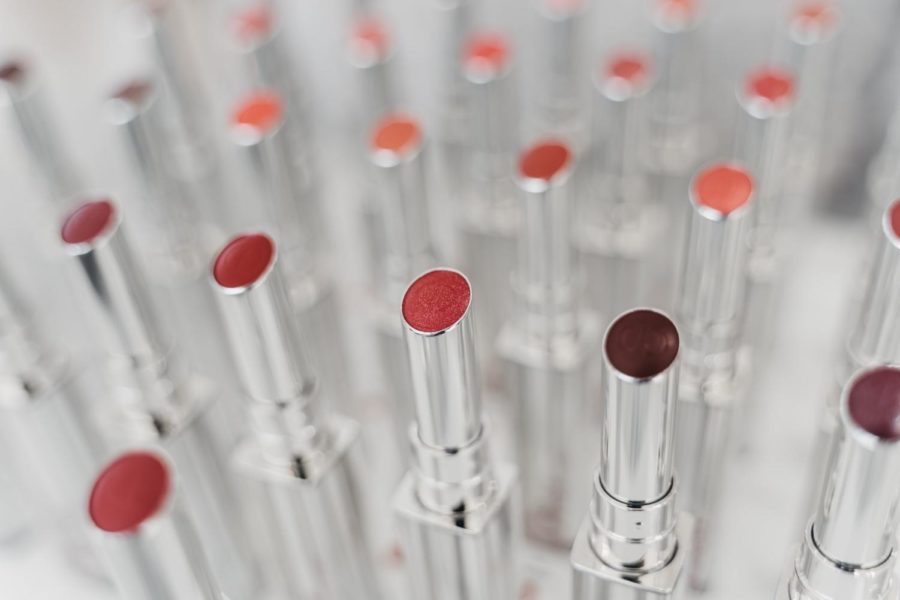What is counterfeit makeup and what is it doing to the beauty industry?
Counterfeit beauty products are increasingly more popular and creating cracks in the beauty industry.
September 7, 2021
Popular beauty brands are dealing with the growing problem of selling counterfeit cosmetics and contributing to the growth of knock-offs. Liability goes all the way up the chain and the brands themselves are responsible for enforcing their intellectual property rights.
Attorney Charles Damschen said, “It is the trademark owner’s responsibility to look for infringement, if it’s counterfeit they notify the e-commerce shop and track through where it came from.”
There are trademark rights and legal protections in place that allow companies to enforce their rights. The name for an established company with lots of sales is the most valuable right. Also, these companies can have exclusive rights to product packaging.
With the rise of social media and e-commerce helping the industry’s black market, it is difficult to regulate in an online world because major e-commerce outlets should be potentially responsible. The Federal Trade Commission protects consumers and enforces the U.S. antitrust law. They have the ability to stop black market products in customs and make sure those shipments are flagged.
Counterfeiters can be penalized with fines, fees and cover the costs for the brand owner because they are responsible for tracking down infringement. Also, they can be red flagged in the system and not allowed to import.
Damschen said, “The formulation in cosmetics can be very valuable and is protected with a trade secret which is helpful for brands starting out with no name recognition and are similar to a trademark and product.”
In a 2017 article published by Bloomberg by David Gauvey Herbert, stresses that the health risks alone are another reason to put an end to counterfeit cosmetics. “The products often come from moonshine-style operations, with mud-caked floors and open vats of dye, and can contain paint thinner, mercury, carcinogens, and dangerous levels of bacteria,” Bloomberg reported.
Even big brand names are struggling to stay afloat when consumers continue to support black market makeup products because of their appealing inexpensive price tag.
“Counterfeit makeup appears to be selling in higher and higher volume. Last year governments made more than 1,500 seizures of fake Estée Lauder products, totaling more than 2.8 million items, most of them MAC makeup,” Bloomberg said. “And the reputational damage to Estée’s 29 brands—which had revenue of $11.2 billion in the year ended August 2016—concerns the company even more than lost sales.”
Jassma’ray Johnson is a junior at Iowa State University. Not only is she a student, but a self-made and self-taught entrepreneur for her affordable Black-owned lip gloss brand, Simply Sámone. Her lip gloss and balms are all created using organic, vegan, and cruelty free products.
“Growing up a lot of kids just made fun of me for my lips they were like big lips, and back then big lips weren’t really popular, and so I went into wearing lip gloss when I was in fourth grade, that’s when I made my first lip gloss, and I never sold it or anything, but it was just something I did for fun.”
During Johnson’s freshman year she came up with the idea to have her own vegan lip gloss brand as her side hustle because it’s “something I’m passionate about why not create my own,” so Simply Sámone was born.
“If you’re making something that you’re giving some people and that they’re putting on their skin, their lips or anything like that you just have to be very cautious of what is going on there,” Johnson said. “I’m very particular about what type of products I use for just like face wash and so I do a lot of like, non-scent things that are vegan-based organic.”
Iowa State students Robbie Thorpe and Abigail Nathe are the 2021 makeup directors for TREND Magazine. Both try to stick to vegan and cruelty-free makeup products with their own personal makeup and working with models.
“I buy from ColourPop, Too Faced, Morphe, and smaller brands. I feel like a lot of smaller brands honestly have better products than what you see at Ulta,” Thorpe said.
Thorpe has never had a bad reaction to makeup and does try to shop vegan and cruelty-free when she can.
“I don’t do deep dives into companies or anything like that. Probably do less research than I should,” said Thorpe.
Nathe prefers to stick to brands that she knows and shops cruelty-free. She appreciates when brands are vocal about their practices and looks for the ethics behind a lot of makeup.
One of the biggest issues in the cosmetic industry is fake products.
“A lot of the smaller companies making it cheaper cut a lot of corners in making it and can 100% ruin the quality and can lead to really bad reactions,” Nathe said.
Nathe emphasized the safety concerns faux makeup can create as well.
“I’ve seen where people have had a mimic product of a mascara and a really big cyst on their eyelid from it,” Nathe said.
The beauty industry can break away from toxic beauty and become a safe place for brands and consumers to appreciate quality products. Only time will tell if this booming industry will continue to thrive despite counterfeits or if it will suffer.







